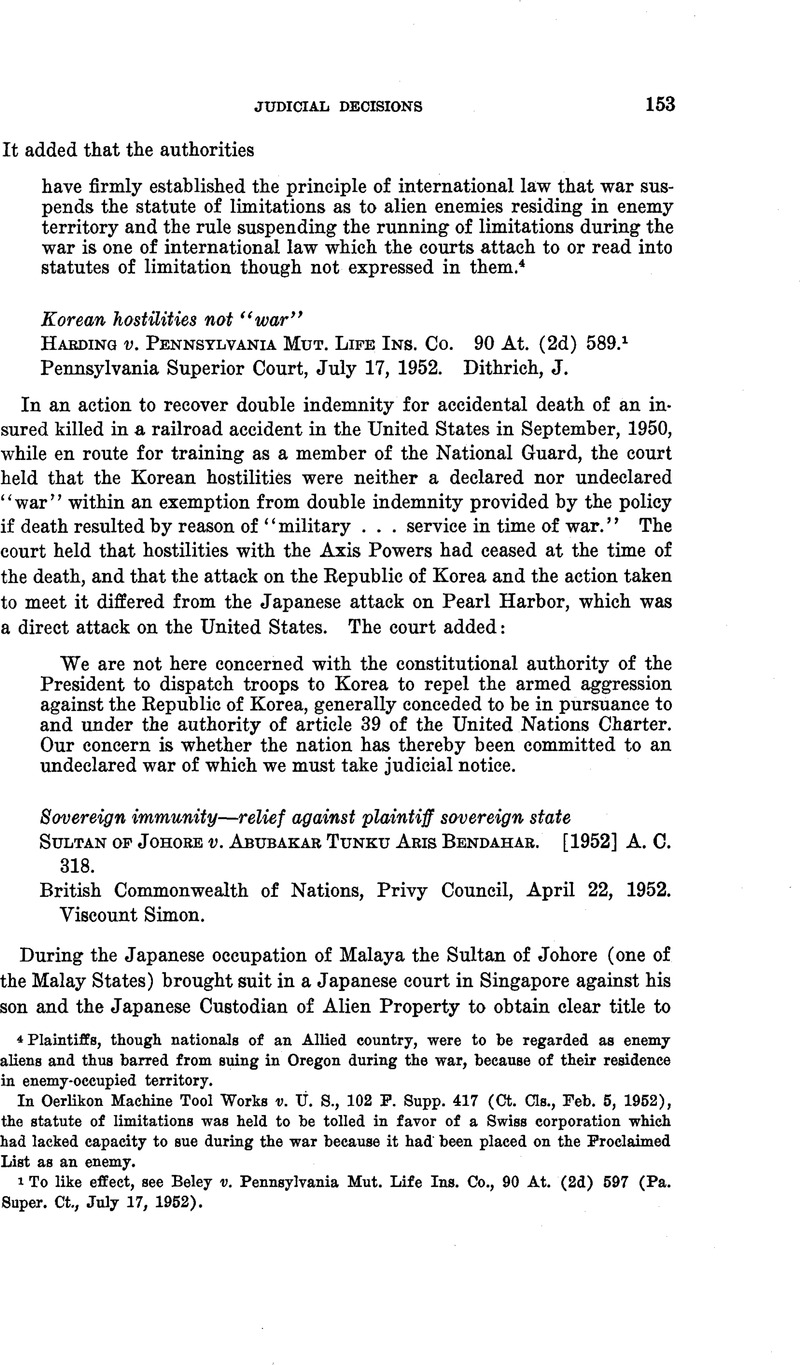No CrossRef data available.
Article contents
Sultan of Johore v. Abubakar Tunku Aris Bendahar
Published online by Cambridge University Press: 20 April 2017
Abstract

- Type
- Judicial Decisions Involving Questions of International Law
- Information
- Copyright
- Copyright © American Society of International Law 1953
References
1 5 P. D. 197 (1880).
2 [1938] A. C. 485; this Journal, Vol. 32 (1938), p. 824.
3 Citing Larivière v. Morgan, L. R. 7 Ch. 550 (1872), and pointing out that its reversal on appeal did not affect this point, L. R. 7 H. L. 423 (1875).
4 See also Kahan v. Pakistan Federation, [1951] 2 K. B. 1003 (Ct. App., July 24, 1951), in which the court held that Pakistan was an “independent sovereign state” and entitled to immunity from suit in the English courts even though the suit involved a commercial transaction in which the contract for the purchase of tanks provided that “The Government agrees to submit for the purposes of this agreement to the jurisdiction of the English courts.” As for any waiver of immunity by reason of this contract provision, Jenkins, L. J., said: “a mere agreement by a foreign sovereign to submit to the jurisdiction of the courts of this country is wholly ineffective if the foreign sovereign chooses to resile from it. Nothing short of an actual submission to the jurisdiction—a submission, it has been termed, in the face of the court—will suffice.”
See also Sayce v. Bahawalpur State (Ameer), [1952] 2 All Eng. 64 (Ct. App., May 20, 1952), affirming [1952] 1 All Eng. 326, which held the ruler of the Indian native State of Bahawalpur immune from suit in England, even though Bahawalpur had acceded to Pakistan and the sovereignty of the Ameer was limited by the grant of certain powers to Pakistan. The court felt bound to accept the conclusions of the executive branch of the British Government on the sovereign status of Bahawalpur and its Ameer, even though the latter may have become a citizen of Pakistan.
In Republic of China v. Pang-Tsu Mow, 105 F. Supp. 411 (Dist. Col., April 19, 1952), a counterclaim for libel brought against the plaintiff state which had sued for an accounting for moneys received by Chinese Government officials (see this Journal, Vol. 46 (1952), p. 557), was dismissed on the ground that it was not “a claim arising out of the same transaction” as the suit by the sovereign plaintiff. Morris, D. J., said: “A sovereign state entering the courts of a friendly foreign nation subjects itself to counter-claim with respect to matters arising out of the same transaction as that upon which the original suit brought by it is based, to the extent that it affords recoupment against said sovereign state. …”




